Hager TYB602F Handleiding
Hager
Niet gecategoriseerd
TYB602F
Bekijk gratis de handleiding van Hager TYB602F (2 pagina’s), behorend tot de categorie Niet gecategoriseerd. Deze gids werd als nuttig beoordeeld door 18 mensen en kreeg gemiddeld 4.9 sterren uit 9.5 reviews. Heb je een vraag over Hager TYB602F of wil je andere gebruikers van dit product iets vragen? Stel een vraag
Pagina 1/2

TYB6.2F
Output 2gang 6A / 1gang shutter/blind,
flush mounted
Input 2gang + output 2gang 6A/1gang
shutter/blind, flush mounted
TXB6.2F
Output 2gang 6A / 1gang shutter/blind,
flush mounted
Input 2gang + output 2gang 6A/1gang
shutter/blind, flush mounted
Bn,.:
M
`
Safety instructions
Electrical equipment may only be installed and
assembled by a qualied electrician in accor-
dance with the relevant installation standards,
guidelines, regulations, directives, safety and
accident prevention regulations of the country.
Failure to comply with these installation in-
structions may result in damage to the device,
re or other hazards.
Hazard due to electric shock. Disconnect be-
fore working on the device or load. Take into
account all circuit breakers that supply
dangerous voltages to the device or load.
Hazard due to electric shock. The device is not
suited for safe disconnection of the mains sup-
ply.
Hazard due to electric shock on the SELV or
PELV installation. Do not connect any loads for
low voltage SELV, PELV or FELV together.
Connect one motor only. If several motors are
connected, motors or device might be destro-
yed.
Use drives with mechanical or electrical nal
position switches only. Check nal position
switches for correct adjustment. Observe
motor manufacturer‘s data. The device can be
damaged.
Observe the motor manufacturer‘s data
regarding change-over time and max. switch-
on time (ED).
These instructions are an integral component
of the product and must be retained by the end
user.
Design and layout of the device
S1 S2
KNX+ /RD
KNX- /BK
In 1 /GN
Com /WH
In 2 /YE
(1)
(2)
(3)
Fig. 1: example device variant with inputs
(1) Illuminated button for manual operation/
programming button
(2) Connection of load(s)
(3) KNX bus connection cable/
connection inputs
Function
System information
This device is a product of KNX system and corre-
sponds to the KNX guidelines. Detailed specialised
knowledge obtained from KNX training courses is
required for understanding. The planning, installa-
tion and commissioning of the device is carried out
with the help of KNX-certied software.
Systemlink commissioning
The function of the device is software-dependent.
The software is to be taken from the product
database. You can nd the latest version of the
product database, technical descriptions as well as
conversion and additional support programmes on
our website.
Easylink commissioning
The function of the device is conguration-depen-
dent. The conguration can also be done using
devices developed specially for simple setting and
start-up.
This type of conguration is only possible with
devices of the easylink system. Easylink stands for
easy, visually supported start-up. Precongured
standard functions are assigned to the in/outputs
by means of a service module.
Functional description
The device receives telegrams from sensors or
other controllers via the KNX installation bus and
switches electrical loads with its relay contact.
Correct use
- Switching of electrical loads AC 230 V with po-
tential-free contact.
- Switching electrically operated motors of 230 V
AC for blinds, shutters, awnings and similar
hangings.
- Installation into wall box according to DIN
49073 (use deep box) or junction box surface-
mounted/ush-mounted.
Product characteristics
- Manual activation of the outputs on the device
possible, building site operation.
- Status display of the outputs on the device.
- Scene function.
- Forced position by higher-level controller.
Functions in switch operation
- Time switching functions.
Functions in roller shutter/blind operation
- Position can be started directly.
- Slat position directly controllable.
- Feedback of operating state, shutter position
and slat adjustment.
- 3 Alarms.
Functions of the inputs
- ON/OFF.
- Dimming.
- Up/down.
- Slat angle / Stop.
- Alarm.
- Scene.
- Mandatory control.
- Time switching operation.
Information for electricians
Installation and electrical connection
DANGER!
Touching live parts can result in an
electric shock!
An electric shock can be lethal!
Disconnect the connecting cables
before working on the device and
cover all live parts in the area!
ç
Connecting and installing the device
CAUTION!
Impermissible heating if the load of
the device is too high!
The device and the connected cables
may get damaged in the connection
area!
Do not exceed the maximum current
carrying capacity!
ç
CAUTION!
When connecting the bus/extension
units and mains voltage wires in a
common wall box, the KNX bus cable
might come into contact with the
mains voltage.
The safety of the entire KNX
installation is at risk. Persons could
also get an electric shock even on
remote devices.
Do not place bus/extension units and
mains voltage terminals in a common
terminal compartment. Use a wall box
with a rm partition or separate boxes
(Figure 2).
ç
CAUTION!
Risk of destruction if parallel circuit of
several motors!
Final position switches could fuse
together. Motors, hangings and the
device may be destroyed!
Connect one motor only!
ç
S1 S2
KNX+ /RD
KNX- /BK
In 1 /GN
Com /W H
In 2 /YE
S1 S2
KNX+ /RD
KNX- /BK
In 1 /GN
Com /W H
In 2 /YE
S1 S2
KNX+ /RD
KNX- /BK
In 1 /GN
Com /W H
In 2 /YE
SELV
FELV
230 V AC
Figure 2: installation with separate terminal com-
partment
z
230 V v
230 V v
z
6LE000377C1
6LE000377C
v

S1 S2
KNX+ /RD
KNX- /BK
In 1 /GN
Com /WH
In 2 /YE
Bus
30 V DC
L
N
10 A
In 1
In 2
Com
Figure 3: connection of switching loads
S1 S2
KNX+ /RD
KNX- /BK
In 1 /GN
Com /WH
In 2 /YE
Bus
30 V DC
L
N
10 A
In 1
In 2
Com
Figure 4: connection of motors
Observe installation regulations for SELV voltage.
Maintain a minimum distance of 4 mm between
mains voltage and bus wires.
The installation circuit must be protected via circuit
breaker 10 A.
Do not connect different phases (outer conductors)
to the device.
zConnect bus cable via connecting terminal.
zConnect loads (gure 3/4) to the load connec-
ting terminals (2).
zPlace device into the installation box.
Connect inputs
green white yellow red black
In 1 Com In 2 KNX+ KNX-
Table 1: connection assignment of the control line
zConnect potential-free contacts to the inputs.
Start-up
Systemlink: loading physical address and
application software
zSwitch on bus voltage.
zPress programming button (1).
The button lights up.
If the button does not light up, no bus voltage is
present.
zLoad the physical address into the device.
Status LED of the button goes out.
zLoad application software.
zNote down the physical address on the device.
Easylink
Information on the system conguration can be
taken from the extensive description of the service
module Easylink.
Start up the device
zSwitch on mains voltage on the outputs.
Switch test mode on/off
The device is connected. Bus voltage and swit-
ching voltage are present.
zKeep button (1) pressed > 5 s with a pointed
object until it ashes green.
The device is in test mode.
Or with test mode switched on
zKeep button (1) pressed > 5 s until it ashes
green 3 times.
The device is in normal operation.
After approx. 5 min. without any further operati-
on, the device exits test mode automatically.
Operating output in test mode
Operation takes place by briey pressing a button
repeatedly (1).
The device is in test mode. The button ashes
green until the rst operation.
zPress the button (1) for a short time.
The output changes its switching state.
The switching takes place according to the
following sequence:
S1 closed - S1 open - S2 closed - S2 open.
Resetting the device to the factory settings
zThe device provides the possibility of restoring
the factory setting via a programming button.
The programming is lost after resetting to the
factory setting. Activation via the bus is no
longer possible.
zHold down the button (1) for (> 10 s) until it
ashes red.
P
P
P
P
Troubleshooting
Test mode not possible. Red programming LED
lights up.
Cause: push-button (1) was pressed too short.
Short press on push-button, red LED goes out.
Press push-button again (> 5 s).
Bus operation is not possible
Cause 1: bus voltage is not present.
Check bus connection terminal for correct
polarity.
Check bus voltage by briey pressing the pro-
gramming button (1), red LED lights up if bus
voltage is present.
Cause 2: device was reset to the factory setting.
Repeat programming and start-up.
s
Appendix
Technical data
Supply voltage KNX 21 32 V SELVs
Breaking capacity μ 6 A AC1 230 V~
Switching current at cos φ = 0.6 max. 6 A
Minimum switching current 10 mA
Operating altitude max. 2000 m
Degree of contamination 2
Surge voltage 4 kV
Degree of protection of housing IP20
Impact protection IK 04
Overvoltage class III
Operating temperature -5 °C 45 °C
Storage/transport temperature -20 °C +70 °C
Maximum switching cycle rate
at full load 20 switching cycle/minute
Connection capacity 0.75 mm² 2.5 mm²
max. tightening torque 0.5 Nm
Upstream protection circuit breaker 10 A
Communication Media TP
Confi guration mode S mode - Easy link controller
Cross-head design PZ1
Installation type fl ush-mounted installation switch/
fl ush-mounted electronic/
fl ush-mounted/surface-mounted junction box
Dimensions 44 x 43 x 22.5 mm
Own consumption on the KNX bus:
typical 7 mA
in standby 5 mA
Incandescent lamps 500 W
HV halogen lamps 500 W
Conventional transformer 500 VA
Electronic transformer 500 W
Fluorescent lamps
-without ballast 500 W
-with electronic ballast 6 x 48 W
Energy-saving lamps 2 x 13 W
LED lamps 2 x 13 W
Change-over time for
change of direction software-dependent
Variant with inputs
Number of inputs 2
Input type potential-free
Total length of extension unit cable max. 9.9 m
Scanning voltage
extension unit inputs 12 V s 1mA
Correct Disposal of this product (Waste Electrical &
Electronic Equipment).
(Applicable in the European Union and other European
countries with separate collection systems).
This marking shown on the waste or its literature indicates that it
should not be disposed with other household wasted at the end
of its working life. To prevent possible harm to the environment or
human health from uncontrolled waste disposal, please separate
this product from other types of wastes and recycle it responsibly
to promote the sustainable reuse of material resources.
Household users should contact either the retailer where they pur-
chased this product, or their local government office, for details of
where and how they can take this device for environmentally safe
recycling.
Business users should contact their supplier and check the terms
and conditions of the purchase contract. This product should not be
mixed with other commercial wastes of disposal.
Usable in all Europe
å
and in Switzerland
s
6LE000377C2
Product specificaties
| Merk: | Hager |
| Categorie: | Niet gecategoriseerd |
| Model: | TYB602F |
| Kleur van het product: | Grijs |
| Hoogte: | 44 mm |
| Internationale veiligheidscode (IP): | IP20 |
| Bedrijfstemperatuur (T-T): | -5 - 45 °C |
| Aantal producten inbegrepen: | 1 stuk(s) |
Heb je hulp nodig?
Als je hulp nodig hebt met Hager TYB602F stel dan hieronder een vraag en andere gebruikers zullen je antwoorden
Handleiding Niet gecategoriseerd Hager
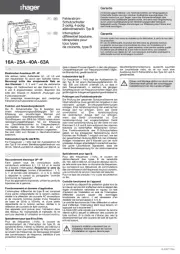
12 Mei 2025
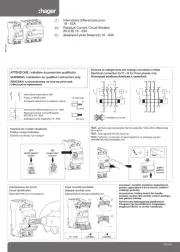
12 Mei 2025

12 Mei 2025
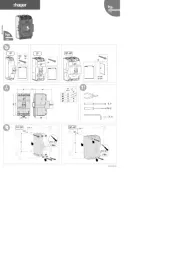
12 Mei 2025
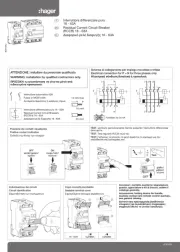
12 Mei 2025
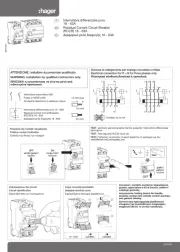
12 Mei 2025
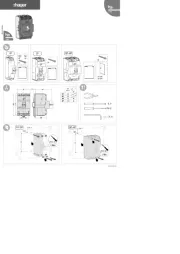
12 Mei 2025
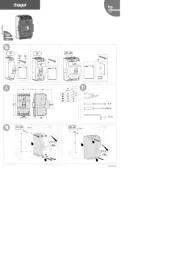
12 Mei 2025
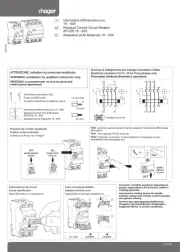
12 Mei 2025
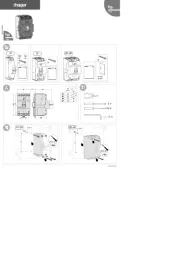
12 Mei 2025
Handleiding Niet gecategoriseerd
- CRAFT + MAIN
- Profilo
- Joolz
- XS Power
- Black Lion Audio
- Deltaco
- KRK
- Amazfit
- Phoenix Gold
- VCDS
- HyperX
- Aquapur
- Darkglass
- Carlsbro
- AV:link
Nieuwste handleidingen voor Niet gecategoriseerd

3 Augustus 2025
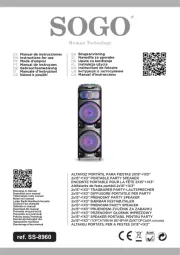
3 Augustus 2025

3 Augustus 2025
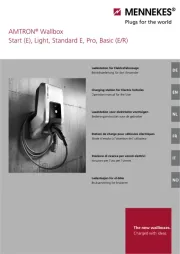
3 Augustus 2025

3 Augustus 2025

3 Augustus 2025

3 Augustus 2025

3 Augustus 2025

3 Augustus 2025
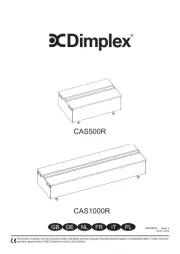
3 Augustus 2025